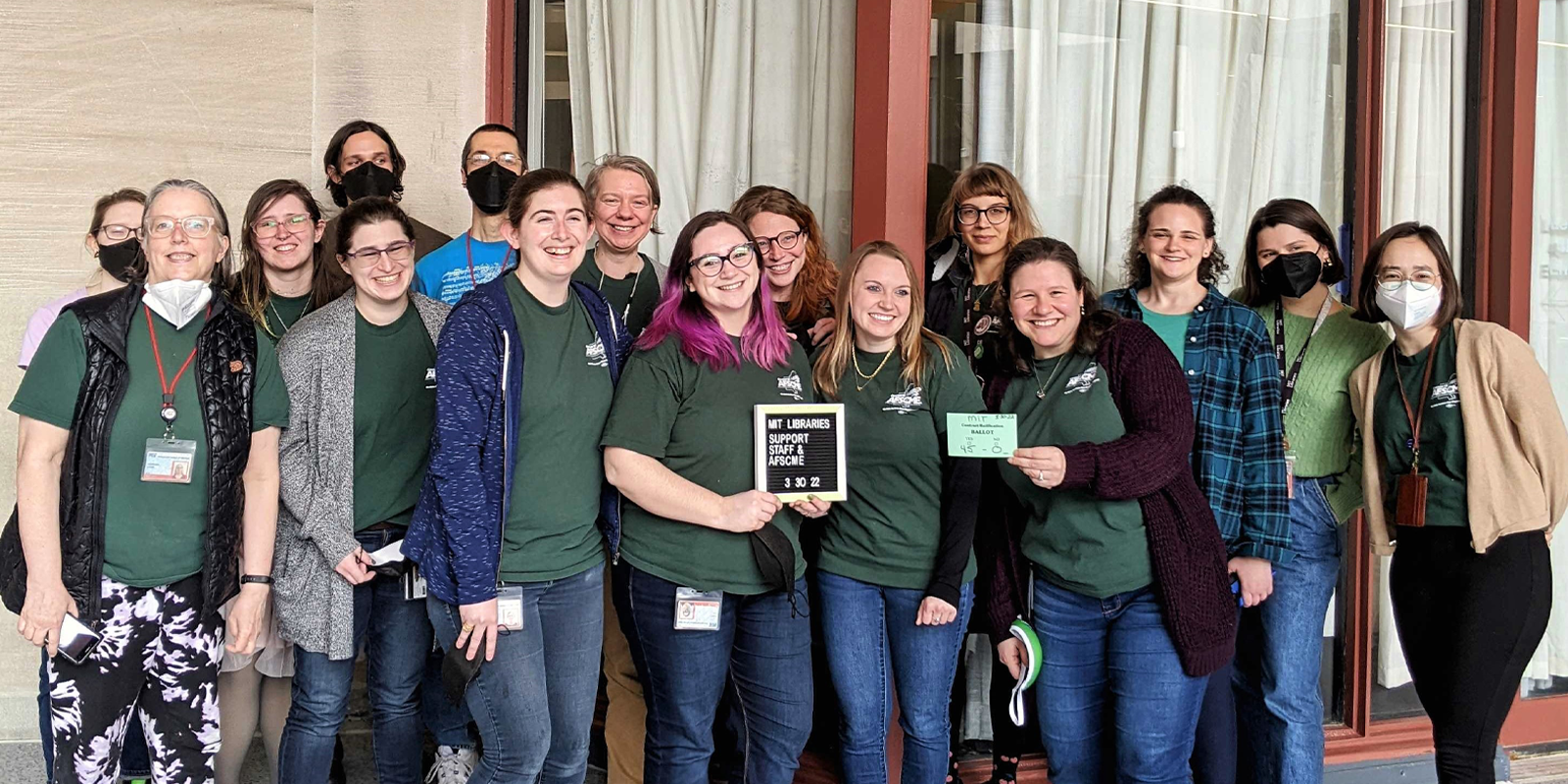“A lot of this started in mid-2018,” recalls Lara Day, a library associate at the Cambridge, Massachusetts, institution. “There was a lot of continuous distrust from our management. We’d sometimes have a chance for feedback, but rarely anything came from it. We’d put our voices out there but there were no changes. Or, we’d say things and management would do the complete opposite.”
Day says things came to a breaking point when one of the libraries underwent a major renovation. The support staff shared ideas about what the renovation should look like, since they were among the most familiar with the library’s workspace. But their input was ignored.
“They just continued to show that they didn’t value what we were saying,” Day says, referring to management.
So, in the middle of 2019, Day and a small group of staff members began to talk about forming a union. When they broached the idea to their co-workers at different locations across MIT, they learned their peers were also thinking about unionizing.
The problems they were facing were bigger than not having a voice on the job. There was also the matter of wages. Staff were asked to voluntarily share what they earned and how long they had been working at the library. The results, Day says, “were startling.”
“We saw data for clear wage disparity between people of color and white people, and white men versus anyone else – for the same job title and same amount of time,” says Day. “Part of the MIT’s libraries’ mission is diversity, equity, inclusion and social justice. But that hadn’t been reflected in our staff.”
They knew that forming a union was the best way to fix those inequities and they decided to join the AFSCME Council 93 family.
The group then pored over different contracts to use as models – several dozen, by Day’s count. They reviewed contracts of their peers, such as the library workers at Harvard, represented by Harvard Union of Clerical and Technical Workers (HUCTW)/AFSCME Local 3650, as well as police, facilities and customer service contracts.
COVID slowed down negotiations with library management, as the staff focused on navigating their jobs during a pandemic, but by the fall of 2020 and through 2021, contract negotiations were well underway.
On March 30, by a vote of 45-0, they ratified their first contract.
“As those of us in the labor movement know all too well,” says Council 93 Executive Director and AFSCME Vice President Mark Bernard, “securing a first contract can often prove to be more challenging than the organizing campaign. The quality and strength of this first agreement is a testament to the unwavering determination of our newest members and a great example of what can be achieved when a courageous group of workers joins forces with a strong and experienced union.”
The new contract will yield better wages, a fairer performance review process, reclassified job descriptions, funding for professional development, a more equitable scheduling system and the thing they were fighting for from the outset – a seat at the table with management and a voice on the job.
“We know this is just the beginning of our journey as a collective and we're thrilled to have such a strong foundation to build on,” says Day. “We look forward to using our voices to cultivate a more equitable, safe and respectful workplace.”
